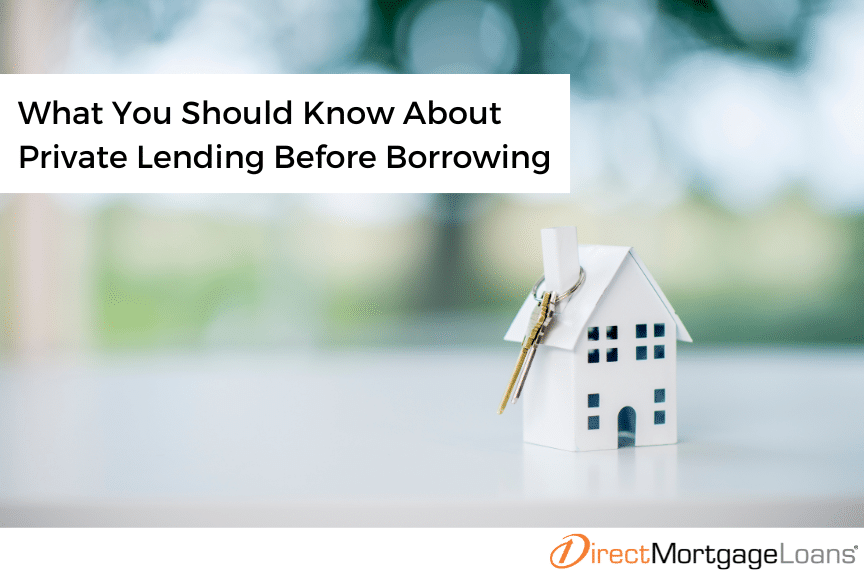How It Functions: A Comprehensive Guide to Mortgage Lending for First-Time Buyers
Maneuvering the globe of mortgage lending can be intimidating for first-time purchasers. Recognizing the basic components like principal, interest, and deposits is important. Additionally, recognizing the different sorts of home loan and the application procedure can greatly impact one's experience. By exploring essential elements that influence rate of interest, purchasers may uncover valuable understandings. What else should they take into consideration before making such a substantial economic dedication?
Comprehending Mortgage Basics
When first-time customers go into the domain name of homeownership, recognizing mortgage fundamentals becomes essential for making educated choices. A mortgage is fundamentally a finance protected by the building being bought, allowing people to purchase a home without paying the complete rate upfront. Buyers have to understand key parts, consisting of principal, rate of interest, tax obligations, and insurance policy, typically summed up as PITI. The principal is the amount borrowed, while passion is the expense of loaning that amount, revealed as a percent. Taxes and insurance are added costs that can markedly affect monthly repayments. Customers should likewise take into consideration the funding term, generally 15 or thirty years, which influences settlement amounts and general passion paid. Understanding credit rating is crucial, as they affect car loan qualification and rates of interest. Grasping these fundamental ideas equips new purchasers to browse the mortgage landscape with confidence and make choices that align with their financial objectives.
Kinds Of Mortgage Loan
When taking into consideration mortgage alternatives, first-time purchasers commonly experience two main types: fixed-rate and variable-rate mortgages. Fixed-rate home loans use security with constant repayments over the finance's term, while adjustable-rate home mortgages can provide reduced first prices that may change gradually. Comprehending these differences is vital for making a notified decision.
Fixed-Rate Mortgages
Fixed-rate mortgages give security and predictability for newbie property buyers maneuvering the intricacies of home funding. With a fixed-rate mortgage, the rates of interest continues to be consistent throughout the finance term, normally varying from 15 to three decades. This constant rate allows customers to prepare their budgets effectively, recognizing that their month-to-month repayments will certainly not change. Novice buyers benefit from this framework as it gets rid of uncertainty in long-lasting financial dedications. Additionally, fixed-rate home mortgages typically come with reduced initial rates compared to adjustable-rate options, making them an eye-catching choice for those seeking to establish home equity gradually. Overall, fixed-rate mortgages offer a simple course to homeownership, ideal for people looking for long-term monetary safety.
Adjustable-Rate Mortgages
For novice homebuyers seeking flexibility, adjustable-rate mortgages (ARMs) can give an attractive option to fixed-rate car loans. ARMs commonly offer lower initial rates of interest, making monthly payments a lot more cost effective in the very early years. These rates fluctuate after an initial fixed period, which can lead to boosted repayments over time. Borrowers must recognize the index and margin that identify future rate modifications. Generally, ARMs have adjustment periods of one, 3, or 5 years, with routine caps to restrict just how much prices can boost at each modification. While ARMs can be helpful for those preparing to offer or refinance before the price readjusts, they additionally bring dangers if market conditions change substantially. Detailed study is crucial for educated decision-making.
The Mortgage Application Process

Key Elements Influencing Rate Of Interest

Down Repayments and Closing Expenses
Recognizing deposits and closing costs is vital for newbie buyers, as these expenses considerably affect the total price of a home mortgage. A deposit is the initial amount paid towards the home's purchase price, usually revealed as a click this link portion. It can vary from as low as 3% to 20% or even more, relying on the loan type and loan provider requirements. A larger down settlement can minimize regular monthly mortgage repayments and get rid of private mortgage insurance (PMI), which safeguards loan providers in case of default.Closing costs, on the various other hand, incorporate different charges incurred throughout the home-buying process. These might consist of financing source charges, appraisal costs, title insurance coverage, and attorney fees, usually completing 2% to 5% of the home's purchase price. Newbie purchasers need to allocate both down payments and shutting expenses to guarantee they can safeguard their mortgage and effectively browse the home-buying process.
Tips for First-Time Homebuyers
What important pointers can newbie homebuyers comply with to navigate the commonly challenging procedure of purchasing a home? Initially, establishing a practical budget is essential. Purchasers need to evaluate their economic situation, including revenue, expenses, and prospective mortgage settlements. Next, getting pre-approval for a mortgage can supply quality on what one can afford and enhance their placement when making an offer.Researching areas is similarly vital; buyers must consider elements such as services, schools, and future developments. Furthermore, it is suggested to collaborate with a certified realty representative that can provide valuable insights and advice throughout the buying process.Home assessments should not be ignored, as they can reveal surprise issues that might affect long-term fulfillment. Buyers should remain client and flexible, understanding that finding the best home might take time. By complying with these ideas, new property buyers can approach the market with self-confidence and understanding.
Often Asked Concerns
What Files Are Needed for Mortgage Pre-Approval?
For mortgage pre-approval, people usually need to supply earnings verification, employment history, credit reports, income tax return, bank declarations, and details of any type of financial obligations (Private Mortgage Lenders Savannah GA). These papers help lending institutions examine financial capability and identify finance eligibility
Can I Obtain a Home Mortgage With Bad Credit Score?

Many loan providers consider applicants with poor credit scores, though terms might differ. Higher rate of interest or bigger deposits can be required. Checking out alternatives with specialized loan providers or federal government programs can also enhance chances for authorization.
For how long Does the Mortgage Authorization Process Take?
The mortgage approval procedure normally takes between 30 to 45 days. Elements affecting this timeline consist of the lending institution's effectiveness, the debtor's economic documentation, and the complexity of the funding application. Delays might happen as a result of extra demands.
What Takes place if I Miss a Home Mortgage Settlement?
If a home mortgage settlement is missed, late costs might be sustained, and credit report can endure. Extended visit this site right here non-payment may bring about foreclosure proceedings, prompting the loan provider to redeem the residential property after a series of cautions.
Can I Refinance My Mortgage Later On?
Re-financing a home mortgage later on is commonly possible, allowing homeowners to readjust their lending terms, interest prices, or month-to-month repayments. Eligibility depends on credit history ratings, current market conditions, and the existing mortgage's terms.
Comments on “How to get approved with private mortgage lenders savannah ga”